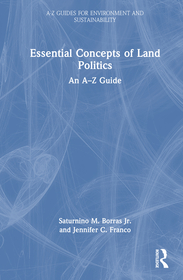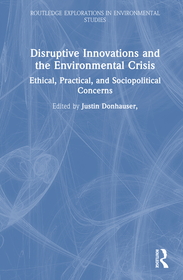
Differentiation and Dominance in Europe’s Poly-Crises
From the Financial Crisis to COVID-19
Sorozatcím: Routledge Studies on Democratising Europe;
-
10% KEDVEZMÉNY?
- A kedvezmény csak az 'Értesítés a kedvenc témákról' hírlevelünk címzettjeinek rendeléseire érvényes.
- Kiadói listaár GBP 37.99
-
18 149 Ft (17 285 Ft + 5% áfa)
Az ár azért becsült, mert a rendelés pillanatában nem lehet pontosan tudni, hogy a beérkezéskor milyen lesz a forint árfolyama az adott termék eredeti devizájához képest. Ha a forint romlana, kissé többet, ha javulna, kissé kevesebbet kell majd fizetnie.
- Kedvezmény(ek) 10% (cc. 1 815 Ft off)
- Kedvezményes ár 16 334 Ft (15 557 Ft + 5% áfa)
Iratkozzon fel most és részesüljön kedvezőbb árainkból!
Feliratkozom
18 149 Ft

Beszerezhetőség
Becsült beszerzési idő: A Prosperónál jelenleg nincsen raktáron, de a kiadónál igen. Beszerzés kb. 3-5 hét..
A Prosperónál jelenleg nincsen raktáron.
Why don't you give exact delivery time?
A beszerzés időigényét az eddigi tapasztalatokra alapozva adjuk meg. Azért becsült, mert a terméket külföldről hozzuk be, így a kiadó kiszolgálásának pillanatnyi gyorsaságától is függ. A megadottnál gyorsabb és lassabb szállítás is elképzelhető, de mindent megteszünk, hogy Ön a lehető leghamarabb jusson hozzá a termékhez.
A termék adatai:
- Kiadás sorszáma 1
- Kiadó Routledge
- Megjelenés dátuma 2024. május 15.
- ISBN 9781032270555
- Kötéstípus Puhakötés
- Terjedelem430 oldal
- Méret 234x156 mm
- Súly 660 g
- Nyelv angol
- Illusztrációk 23 Illustrations, black & white; 23 Line drawings, black & white; 13 Tables, black & white 762
Kategóriák
Rövid leírás:
Against the backdrop of a more differentiated EU, this book discusses the relationship between differentiation and domination in the EU in relation to how it has been transformed through the financial and refugee crises, the Covid-19 pandemic, Russian invasion of Ukraine and in general, a more volatile and less rule-bound global context.
TöbbHosszú leírás:
Against the backdrop of a more differentiated European Union, this book discusses the relationship between differentiation and domination in the EU in relation to how it has been transformed through the financial and refugee crises, the COVID-19 pandemic, the Russian invasion of Ukraine, and in general, a more volatile and less rule-bound global context.
In doing so, it assesses to what extent these adaptations represent significant change, generating new problems and challenges, or on the other hand, providing an opportunity for new solutions or even signalling a new approach to governance that can mitigate problems associated with domination. Differentiation is discussed not only from a legal perspective, but with special attention to structural and institutional arrangements, which includes patterns of path dependence and built-in biases.
This book will be of key interest to scholars and students of public sector crisis management, international organisations, and EU politics and studies.
TöbbTartalomjegyzék:
1. Introduction 2. Conceptualising Differentiation and Dominance 3. Differentiating Shock 4. Eurozone Economic Management after Three Crises: Have Discretionary Measures Created too much Space for Domination? 5. Post-Covid-19 Recovery and New Types of Intra-EU Conditionality: The Case of Slovakia 6. Arbitrariness and Technocracy: The European Central Bank through Multiple Crises 7. The Status of Dominance in the EU System of Economic Governance: Drawing upon the Greek Case 8. Differentiation and the Unpicking of the EU’s Asylum System from within: Greek Perceptions and Policies before and after the 2015 Migration Crisis 9. Differentiated Integration and Unequal Personal Statuses in the EU 10. “United, we Tweet”: Belonging, Solidarity and Othering in German and Greek Twitter-Spheres 11. From Division towards Convergence? Comparing Crises Discourse on Migration in the Polish Parliament 12. The Ukraine Crisis (2014) and the EU’s Foreign Policy Apparatus: A Differentiating Shock? 13. Is the Differentiated EU Facing up to Chinese Influence? 14. The Implications of Governance Differentiation in the EU: Comparing the Sovereign Debt and the Pandemic Crises 15. No Solidarity without Norm Conformity: Democratic Backsliding Reduces Solidarity and Increases the Desire for Punishment amongst EU Citizens 16. Conclusion
Több












